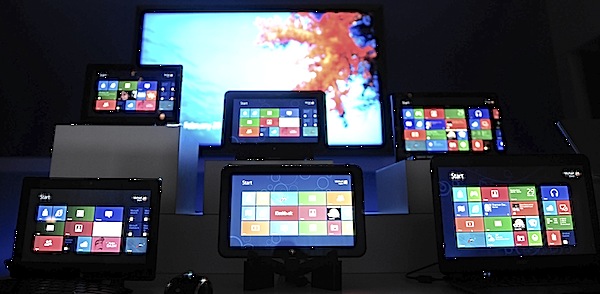
Why not just wait for Windows 8?
Microsoft is starting to make good on its Windows 8 Pro upgrade offer -- $14.99 for new PCs running the current version purchased between June 2 and January 31. Today, registration opened, for redemption when Windows 8 ships on October 26. PCs running Windows 7 Home Basic, Home Premium, Professional or Ultimate qualify for the upgrade, for which registration must be completed by February 28.
While the program arguably is a benefit to Windows 7 PC buyers, Microsoft also double-dips licensing revenue. For back-to-schoolers who can't afford or don't want Macs (or Chromebook, not to be forgotten), Windows 7 is the only real choice. In another universe -- perhaps far removed from this one -- Microsoft shipped Windows 8 in time for these shoppers. But not here. (Perhaps in yet another far-flung reality Microsoft shipped, keeping with Mayan prophesies, Windows 2012 EOW -- End of World -- edition.)
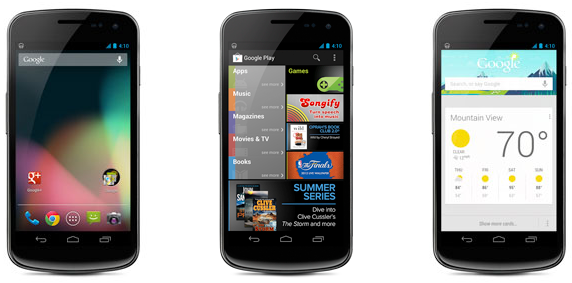
How to install Jelly Bean on Galaxy Nexus
The Samsung/Google Galaxy Nexus and Android 4.1 Jelly Bean are a remarkable combination of hardware and software. If you're one of the less fortunate Galaxy Nexus owners and you haven't yet received Android 4.1 Jelly Bean, or you just want to restore from a custom ROM, this guide will show you how to install the stock Android 4.1 Jelly Bean on your Galaxy Nexus.
Before actually getting to install Android 4.1 Jelly Bean, you should know that this process will erase all the data on your Galaxy Nexus, so take notice and backup the contents of your smartphone before performing the install. The easiest and most conveniently available method to perform a backup is to select "MTP mode" when you connect your Galaxy Nexus to the computer and then copy all the data that you want to backup to your computer.

If Google+ is a ghost town, there sure are lots of spooks hanging around here
I am totally tanked about Google+ offering custom URLs, which product manager Saurabh Sharma announced a week ago. For anyone looking to establish any kind of brand via the social network, custom URLs that look like this (https://plus.google.com/+joewilcox/posts) are more desirable than ones like this (https://plus.google.com/u/0/114738075629051960079/posts). Some people with verified accounts (I have one) are custom URL already (not my account). The change intrinsically increases Google+'s value compared to, say, Facebook, which already offers vanity names.
Something else: Custom URLs may finally end the debate about Google+ popularity. There are ongoing blogs and news stories claiming the social network is a ghost town. That's not my experience. Critics claim there simply isn't enough public activity, while defenders say the amount of private Circling isn't easily measurable and makes activity seem much less than it actually is. I see the situation like this: If custom URLs are as valuable as I contend -- and they surely have proven to be elsewhere -- demand for them will show how little or how much Google+ matters across the social media landscape and whether it's a city building or ghost town making.
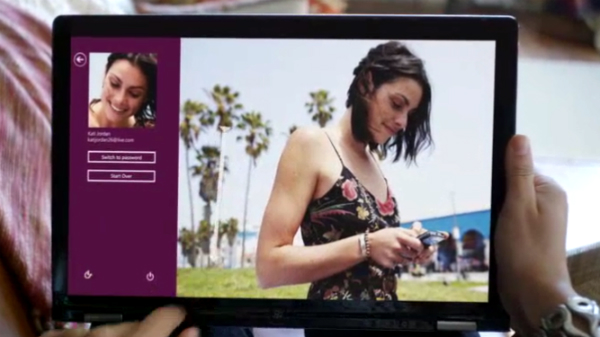
10 Windows 8 features you should know about
Windows 8 will make its public debut on October 26 and has been controversial ever since Microsoft first released information about the operating system to the public. What most can agree on is that Windows 8 is a shift away from the traditional desktop-orientated operating system towards a system that can be deployed on a wider variety of devices.
The 10 features listed here are but some of the benefits coming with Windows 8.

Retailers may soon use tagged Facebook photos to identify you in stores
A new tech startup that produces facial recognition camera systems tied to Facebook tagged photos, plans to offer the technology to more traditional physical stores so they could offer you appropriate deals as you enter their business. That’s great for stores that want to have more targeted information about you, based on a bit of your history and likes. But what about privacy, what are the implications?
For now, you are not included in this scheme unless you opt in via Facebook to a third party service. The service would then present tailored deals to your mobile device when you enter an establishment using the technology (currently being tested in Tennessee). Facedeals, the provider, says this simply bolsters and leverages check-ins so that local businesses have more personal information, and by knowing and targeting the products they offer you based on your likes and preferences they can seem more relevant, like discounted or free drinks for using the service at a bar & grill.
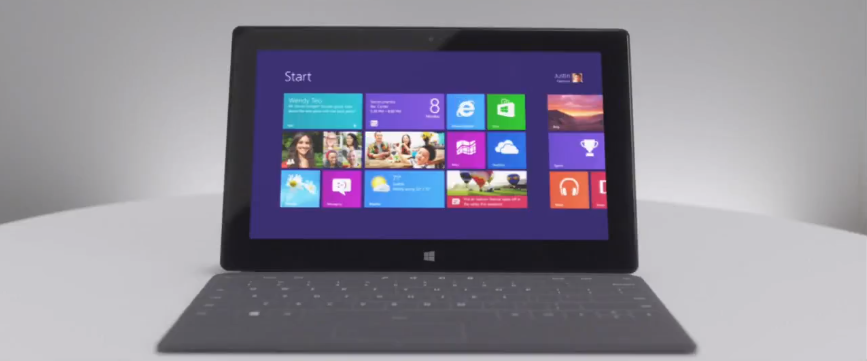
Microsoft Surface could easily upset iPad in K-12 education
Microsoft needs to harness and capitalize on some of the pent up anticipation that is surrounding roughly the next 5 months of its product lineup. Let's face it: the holiday season is going to be a blissful one, with Windows 8 coming out in late October for consumers and the Surface rumored to be out on the same day.
Optimism for Windows 8 grows, dulling early worries about its future. A recent poll run by BetaNews found that 45-percent of respondents are set to get Windows 8 as soon as it's released. And a forward-thinking interview with the CEO of Laplink, Thomas Koll, firmly solidifies his belief that Windows 8 is far from the next-of-kin to Windows Vista.

I'm an early adopter, and I can't help it
Second in a series. "My name is MB and I'm an addict" is what I would say at the first Early Adopters Anonymous meeting.
I'm driven by an addiction to try a product as soon as possible, at the earliest point in its life cycle and I can (silently) admit to it being a compulsive behavior. It's not that I don't enjoy it, but I feel that's what I should do with every new product that I can get my geeky hands on. Yes, that's the second confession, and I'm fairly certain it will not be the last either.
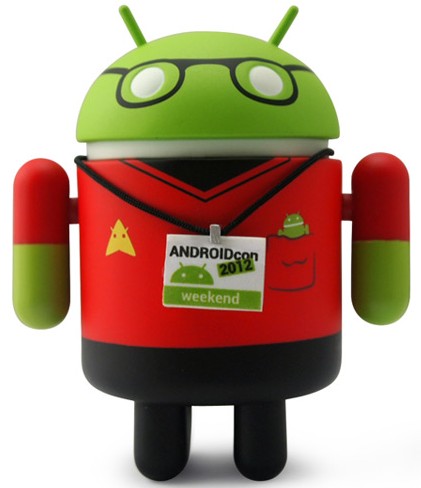
I'm an Android rooting addict
First in a series. I feel dirty. As I crawl my way up to my desk this morning, I get the sense that I'm somehow less than fresh. After all, I've just spent several days living on the very edge of Android's outer darkness, a place where evil lurks and "good" users know not to tread.
I'm speaking, of course, of the seedy underworld of Android device rooting, a subculture so far removed from the mainstream of computing that its denizens are hardly recognizable. It's a world that has always fascinated me. But as an outsider subject to the rules of "civilized" society, I could never fully understand the allure -- dare I say, the addiction -- that binds so many to this dark place.
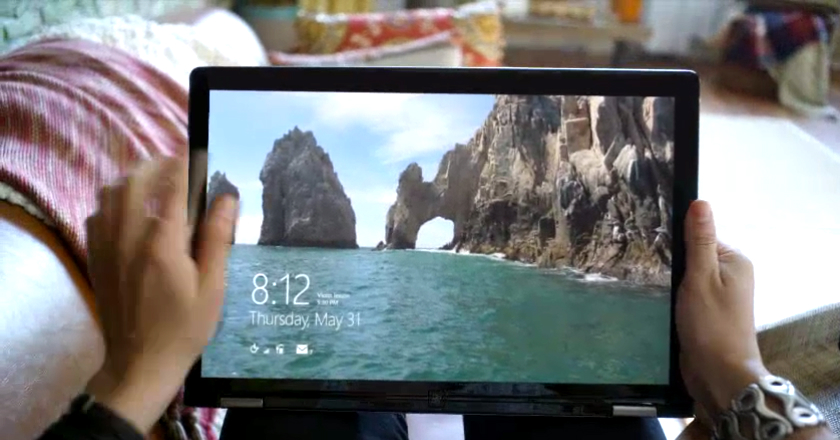
Early adopters rush to Windows 8
A month ago today I asked: "Will you buy Windows 8?" About 1,500 of you answered the poll and offered more in comments -- to the story and others that followed. Now that Windows 8 is released to manufacturing and available to developers and to enterprises, it's good time to review your answers.
About 45 percent of respondents plan to buy Windows 8 as soon as it's available -- more consumers (25.06 percent) than business users (19.55 percent). All total, 55.71 percent of you plan on buying Windows 8 within six months of availability (from August for businesses and October for consumers). Given our select audience, I don't expect adoption to be that high that fast for the broader market. However, considering that analyst data -- from Net Applications, among others -- puts XP usage higher than any other Windows version, there is potentially huge pent-up demand for Win8. Then there is something different -- the new user interface formally known as Metro. (Say, what's its name this week?)

Laplink CEO: Windows 8 will ensure Microsoft's dominance in the enterprise
You can’t have failed to notice that Windows 8 is attracting a lot of negative press. Some commentators, such as myself, have said it will flop, others that it will be the new Vista.
But not everyone thinks the updated operating system is a disaster. Thomas Koll, CEO of Laplink, is actually pretty positive about Windows 8's chances, and took the time to sit down with me and share his views about that and other topics, including flat PC sales, Microsoft Surface and tablet adoption in the enterprise.
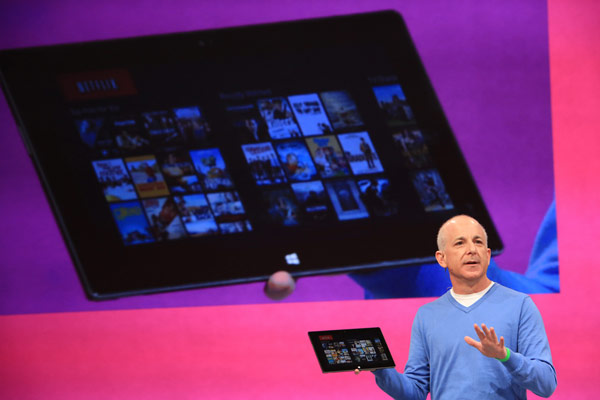
How much would you pay for Microsoft Surface?
End of summer typically means slower news cycle and with it more ridiculous rumors and positively pathetic punditry than ever. For example, the Apple Fanclub of bloggers and journalists squirms and squeals like a pack of hogs rolling in fresh mud -- they can't get enough of the Samsung trial under way in Northern California. Then there is Microsoft and the mini-revolt over the Surface tablet. Acer whines, Toshiba gives up Windows RT plans and everybody who is no one guesses just how low Microsoft will sell its tablet.
The problem is one of conflicting objectives. Apple's iPad sells faster than bacon cheeseburgers (let's keep to the pig metaphor shall we) during the County Fair. Total shipments topped 85 million in July -- in about 27 months. Today, IHS iSuppli put Apple's second quarter tablet market share at 69.6 percent globally -- that's up 44.1 percent, or 11.5 points, sequentially. Yeah, from 58.1 percent in Q1. (Pop those eyes back your head now.) Meanwhile, Windows starts essentially from zero. Microsoft can't close distance on iPad fast enough, and sure-fire, proven way is offering a compelling alternative for much less.
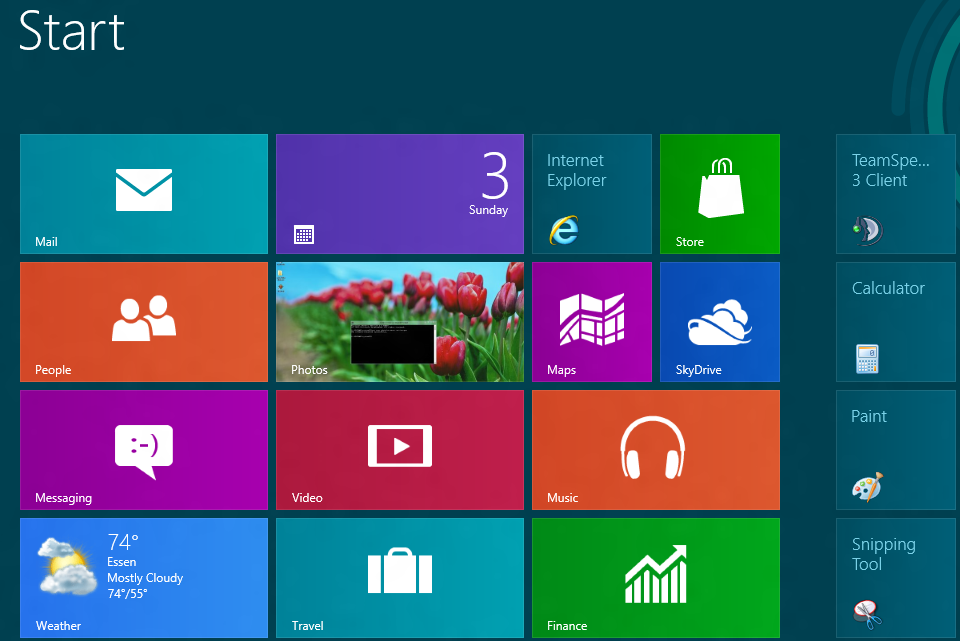
Is Microsoft planning to ditch Intel post-Windows 8?
It's a radical thought. What if Microsoft is secretly planning to ditch Intel? With all of the recent talk about Windows RT "PCs", distinctions between the consumer roles associated with RT-based devices and the more traditional PC roles normally reserved for Intel-based systems have become blurred.
Suddenly, usage scenarios and form factors that were firmly part of Intel's territory are being encroached upon by a cornucopia of non-x86 Windows offerings. And cheering them all on is the chip maker's longtime comrade-in-arms, Microsoft. The Redmond, Wash.-based behemoth has been looking for a way out of the Wintel duopoloy for some time now, and the combination of increasingly powerful ARM designs and a tepid response to Intel's Ultrabook campaign has given the company the perfect opportunity to step out on its old partner.

Apple vs Samsung: The defense of common sense
The transpiring events of Apple’s lawsuit against Samsung divides the technology industry and hones in on several overarching intellectual property talking points and issues that far extend the perpetual "eye for an eye" battle the companies occupy. Many writers and pundits state that the lawsuit will be a primary stepping stone to IP and patent reform and will be a primary decider of the future of patent law in the technology industry.
What the trial really rises to the surface: the two differing approaches with which Apple and Samsung view the situation. Apple’s perspective hinges on protecting the intrinsic and unique value of their intellectual property, whereas Samsung focuses more on the end game of consumer perception.

Galaxy Nexus HSPA+ with Jelly Bean review
BetaNews certainly loves the Samsung Galaxy Nexus. Joe Wilcox uses one, Tim Conneally uses one, now I use one. I wanted a smartphone that could easily deal with day-to-day tasks, had decent enough battery life that could get me through the day, had good build quality, and most importantly, received timely software updates.
As some of you may have already read, my Galaxy Nexus came with Android 4.0 Ice Cream Sandwich, but I managed to update it to Android 4.1.1 Jelly Bean. I wanted to experience it without the placebo effect induced by claims of a faster interface. So how does it stand up to my four criteria?
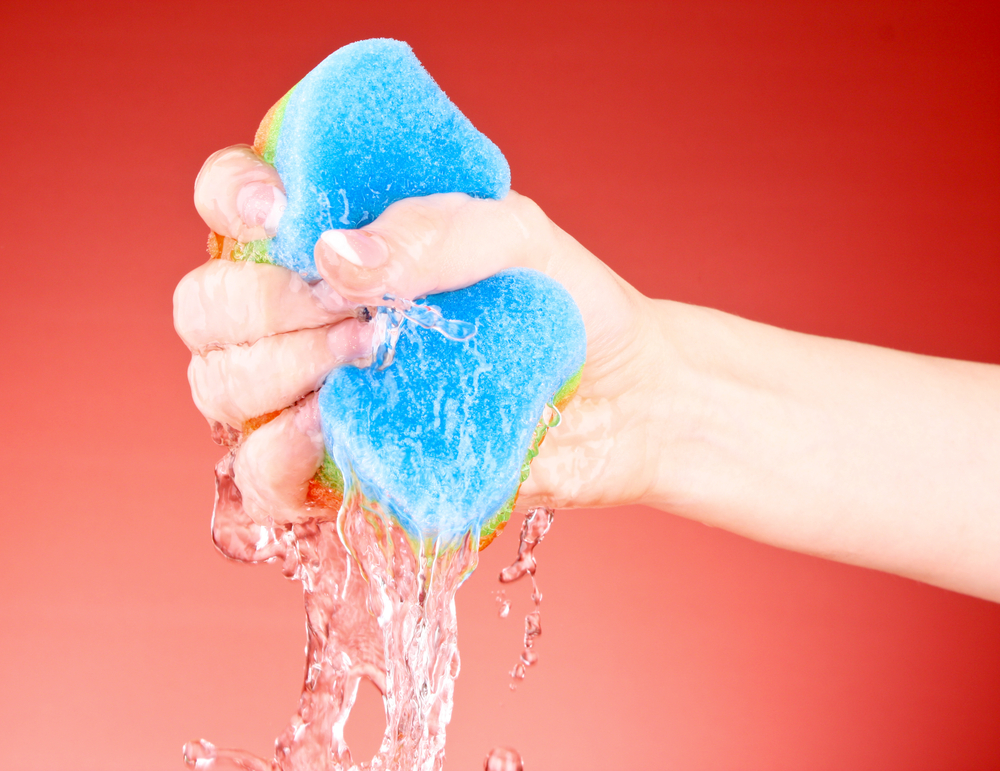
Stop the real SaaS -- software as a sponge -- and give me back my hardware, please
The Commodore 64 celebrates its thirtieth birthday this month. That’s 64 kilobytes for around $600. A massive amount of RAM at the time. And for another $600 you could buy a 5.25-inch floppy disk drive, which could store 170kB on a disk. Programs loaded completely into RAM so that you could remove the program disk from the drive and insert another one to store data. Where can you get a word processor or database that will run in 64k now? Yes, of course we’re routinely doing things now that were only distant dreams back then. But I began my computing experience running my business on just such a Commodore 64.
By 1986 mass market PC clones featured a colossal 512k of RAM and a 4.77MHz processor. But although that was a massive step forward, in no time you needed to upgrade to 640k RAM, and then find ways of using the extended memory registers between 640k and 1MB. In 1990, Windows 3.0 needed 7MB of disk space -- so you’d need a hard drive to run it, which not everyone had.
